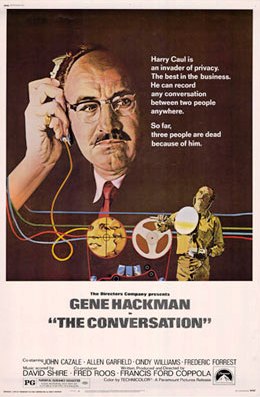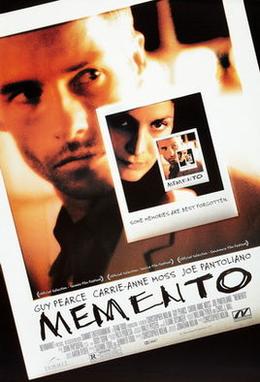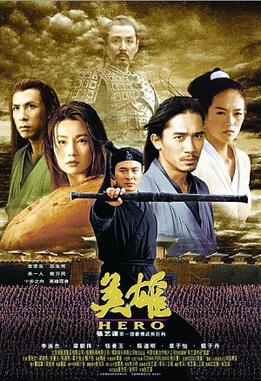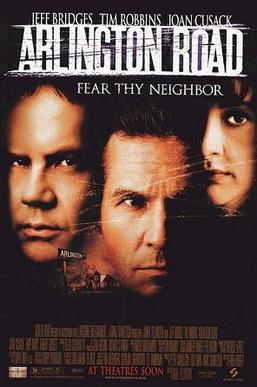I have been enjoying the way movies can play tricks on you or experiment with narrative, having recently seen two surprising films. The first, The Prestige (2006), was a drama that keeps you guessing all the way through. One or two brilliant moments towards the end really shine where the obsession of the two main characters, both stage magicians, breaks through, and we finally see what drives them. Another was the (very) slow but compelling thriller The Conversation (1974), in which Gene Hackman stars as troubled and obsessive surveillance man, Kaul, as he tries to piece together a conversation his team has managed to record, to find out why it is wanted so much, and what danger it could cause. What sounds like a random chat (“who started this conversation anyway?”) grows to have more and more significance as the puzzle grows thicker. And the film refuses to give you all the answers.
Following on from my post on quirky films last month, here are 3 more films which don’t give you the full picture straight away.
Momento (2000)
Christopher Nolan’s brilliant debut as director is required viewing if you are into “serious” films, or crime films, or dramas. Guy Pearce plays Leonard, a man whose short-term memory does not work very well, and Nolan gives us insight into this experience by stopping us seeing what has just happened before each segment of film. So how does the film work? Well, we see the last section first and go backwards! So the last moments of the film is the earliest point in the narrative – and this works really well. We understand Leonard's bewilderment and panic, we laugh and are shocked with him - all on his very personal quest to find his wife's killer. But the deeper you go into this film, the more unpleasant s character turns out to be… that’s all I’m saying, but you’ll never guess how complex his life and problems are. Makes you think twice about the issue of how to best treat or help disabled people.... and it also comments on the whole noir/police genre and how it works, with all the data and clues that you can't always follow, something that goes back to early noir like 1948's The Big Sleep.
Hero (2002) – a great exploration of deception and the mettle of a person’s character which begins with a nameless prefect (Jet Li) from a small jurisdiction of Ancient China approaching the King of Qin in his impressive palace. He tells of how he has defeated the king’s three most deadly enemies, the assassins Broken Sword, Flying Snow and Long Sky. Amidst all the incredulously picturesque fighting, which is director Yang Zimou’s strange but enjoyable breed of superhuman fantasy martial acts (I think we should appreciate its uniqueness and the way it tells a story rather than bemoaning the weirdness of it), the plot becomes more and more devious. From a certain point in the film you are invited to begin to doubt the various narratives and ways of portraying the King’s quest to conquer rebels and expand his kingdom. OK, so the film doesn’t succeed as well at captivating us as the tragic, emotional journey that is House of Flying Daggers, but it is still worth a look, if only for the dazzling colours in the costumes and fights.
Millennium Actress (2001) – if you’re willing to let the answers come gradually through what can be a confusing 2 hours, take a look at this beautiful animated film where the story unravels through incredible scenery from Japanese cinema, ranging from ancient Japanese warfare to the high-school genre, to rural settings, and even to a mission to the moon (an incredibly beautiful metaphor in the film). Through each film sequence, we follow the story of one actress’s impressive life as she is picked from obscurity and becomes famous, and yet throughout seems to be chasing a mysterious love, who she treasures more than those around her. The film worlds overlap with the real one, until we become as caught up in her life as her two biggest fans. Actually a very simple idea, but cleverly put together into a superb, moving, and at times comical, film that shows just how stubborn and complex and “unready to settle” we humans can be. The haunting climax poses some serious questions to us about what it is that we are looking for in life. When will our dreams be fulfilled?
I could have also mentioned Arlington Road here, a 1999 film about trust, community, and perhaps the state of America, starring Tim Robbins, and which from an already edgy story determines to defy the conventional, and the way we expect the movie to head.
One more off-the-wall movie to finish you off: Night Watch (2004) – which was at times quite an uncomfortable experience, and comes across as more a bunch of crazy ideas than one story – but (and this will be highly personal to each viewer) it never put me off engaging with its gritty horrific world in all the confusion and which won points with me with some really surprising intense sequences borrowing
 from the thriller and action genres, and a killer ending. I'm not sure I followed it all, and not sure if its view of the world having a balance between good and evil is supposed to be good or not, it all seems very sinister and kind of an arbitrary way of running things.
from the thriller and action genres, and a killer ending. I'm not sure I followed it all, and not sure if its view of the world having a balance between good and evil is supposed to be good or not, it all seems very sinister and kind of an arbitrary way of running things.That's all for now, more on film to follow in a couple of weeks...






No comments:
Post a Comment